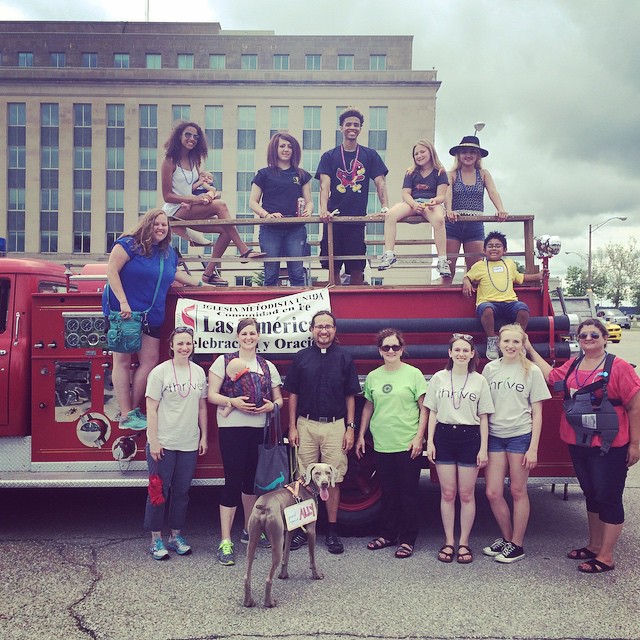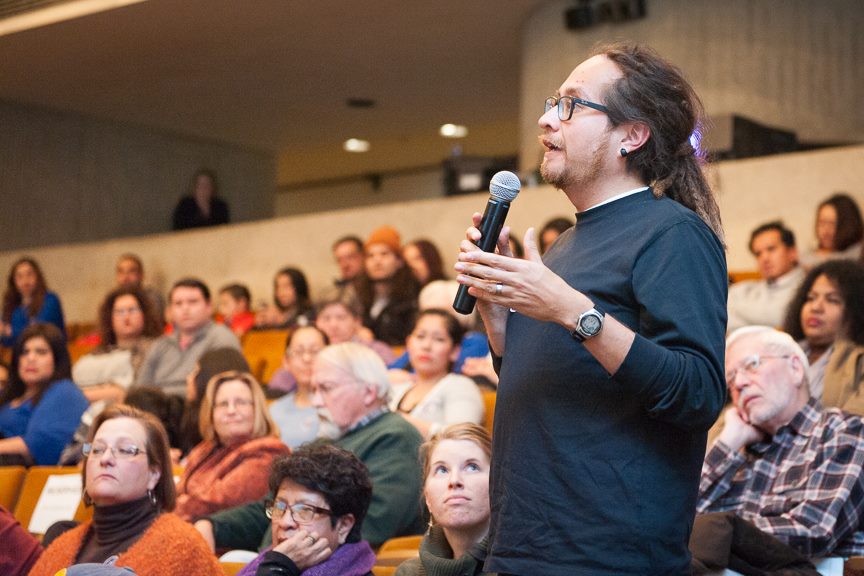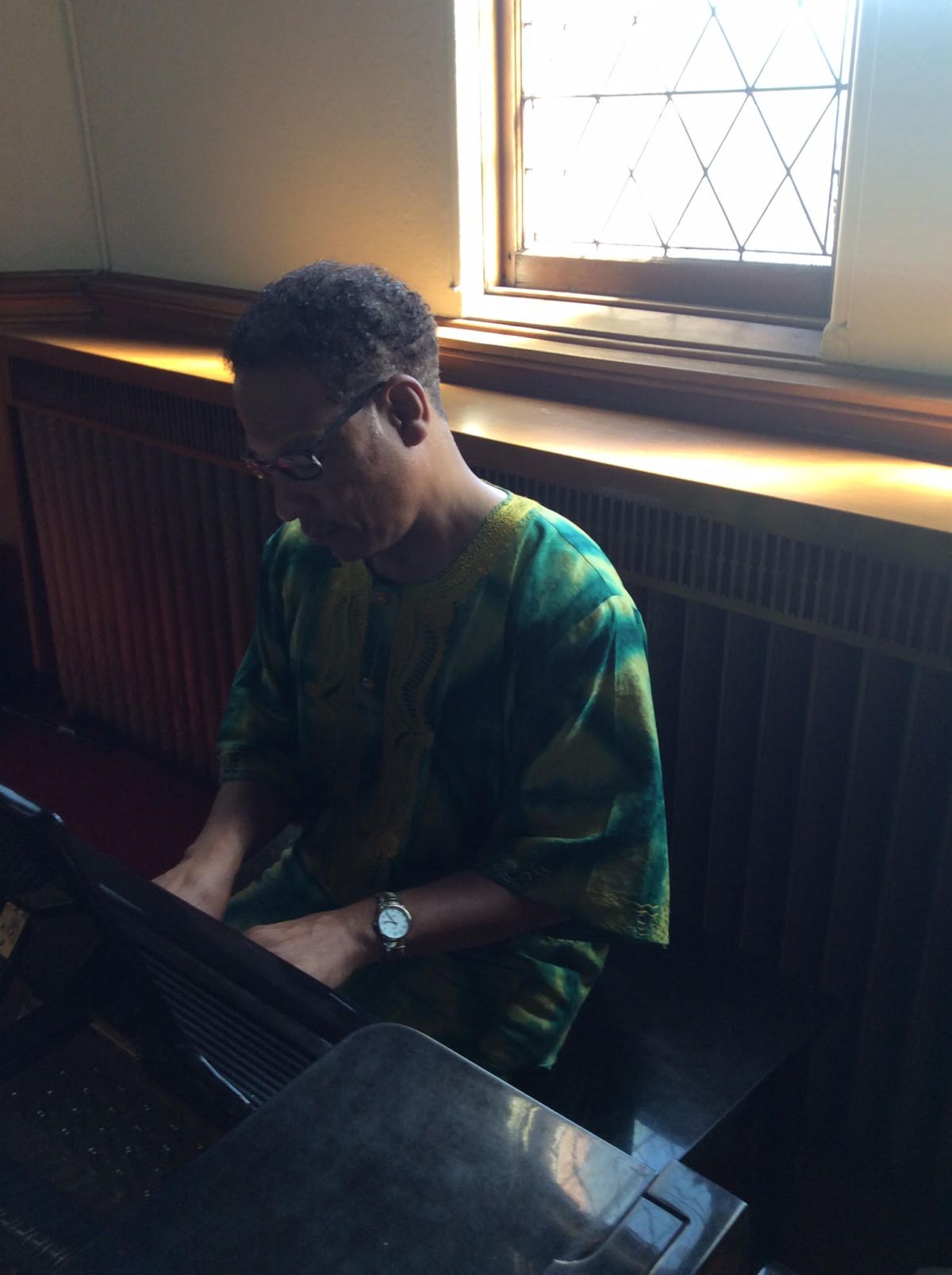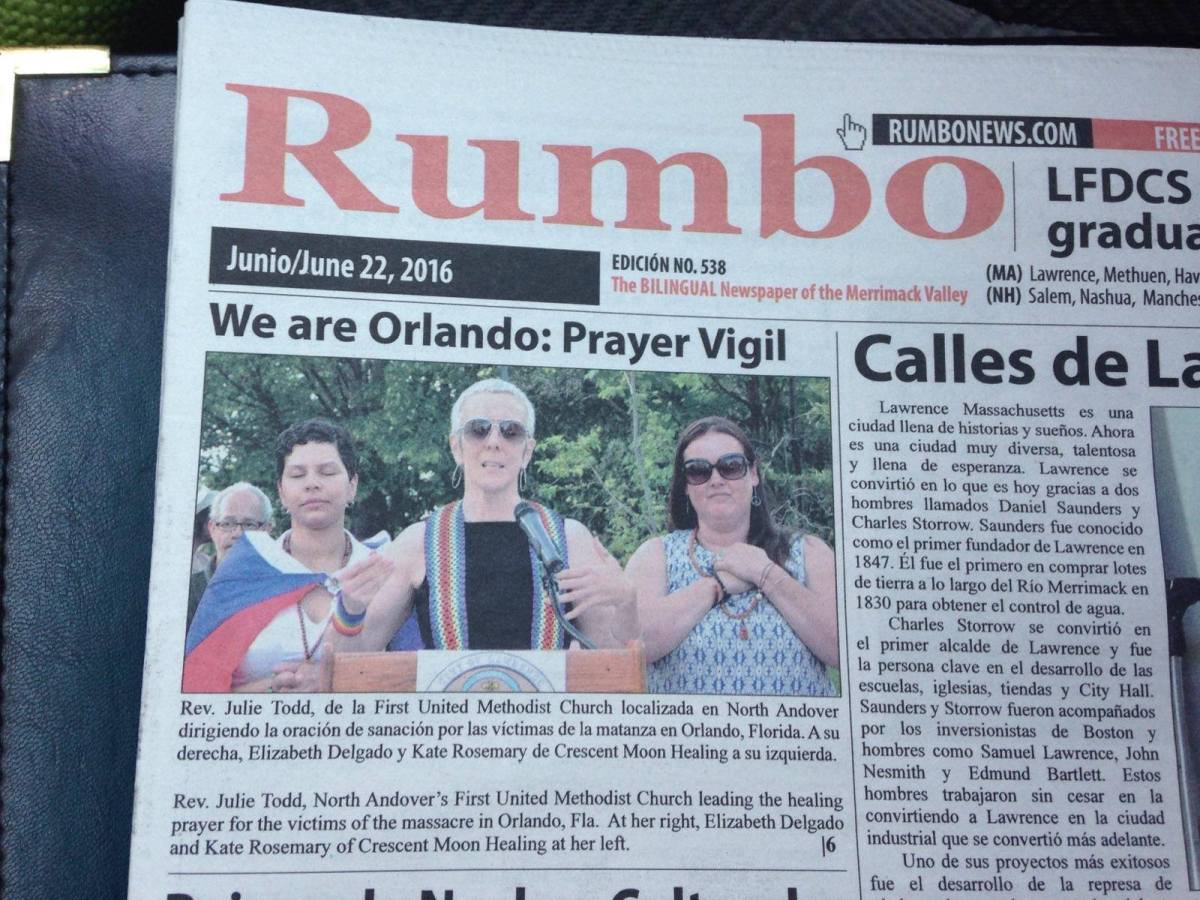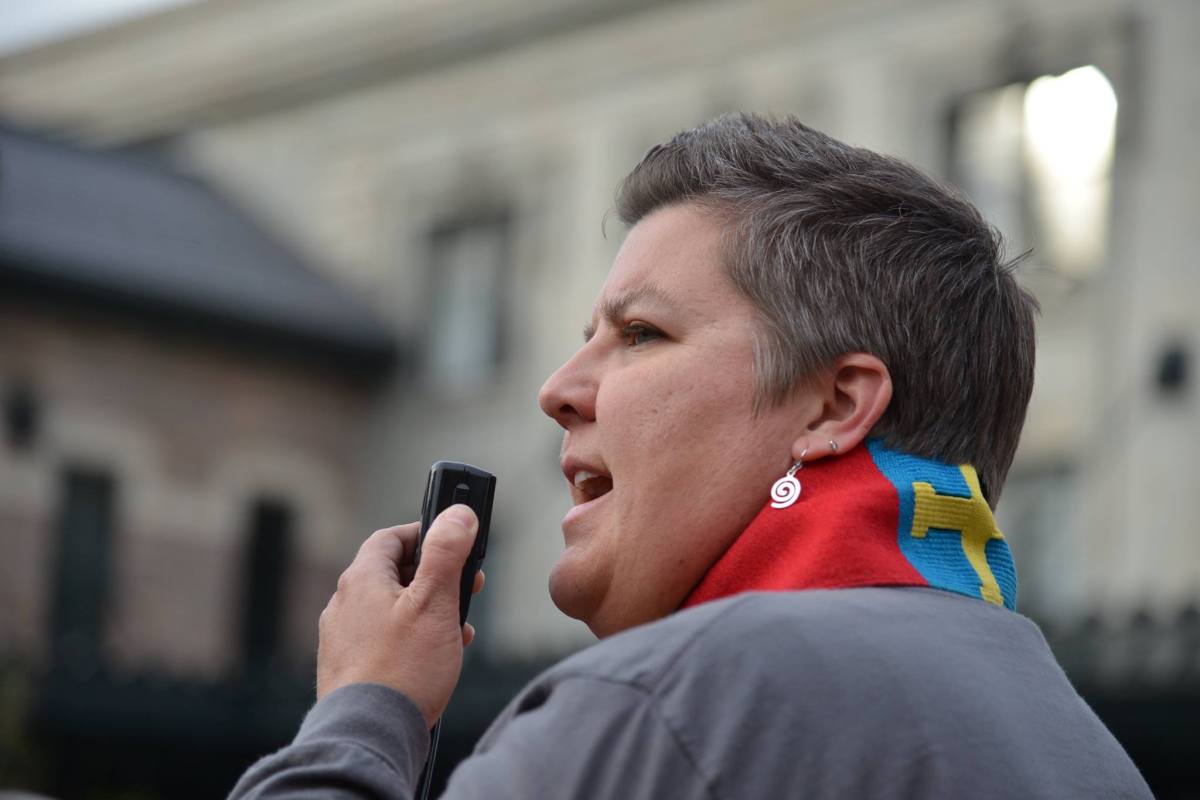Anne Dunlap, nick-named Fierce Good Reverend to the Revolution, is an activist, writer, herbalist, occasional farmhand and ordained United Church of Christ pastor. She is often found protesting for the rights of people marginalized by society.
Inspired by the 1980’s Sanctuary Movement, Dunlap’s call to activism began at the early age of sixteen. While still a graduate student at the Iliff School of Theology, on May 27, 2008, she stood trial as one of 83 Transform Columbus Day (TCD) nonviolent protesters. She has been a constant presence and advocate for immigrants facing deportation hearings and for the rights of day laborers. Most recently, she is one of the leaders in the local Denver chapter of the national social activist group, Showing Up for Racial Justice (SURJ).
She continues to use the transformative power of nonviolence to engage issues of social justice. But on the day we met, we sat at her kitchen table over a thermos of one of her specially-prepared herbal teas. As an herbalist trained in the Wise Woman Tradition, she now incorporates herbal support while counseling people.
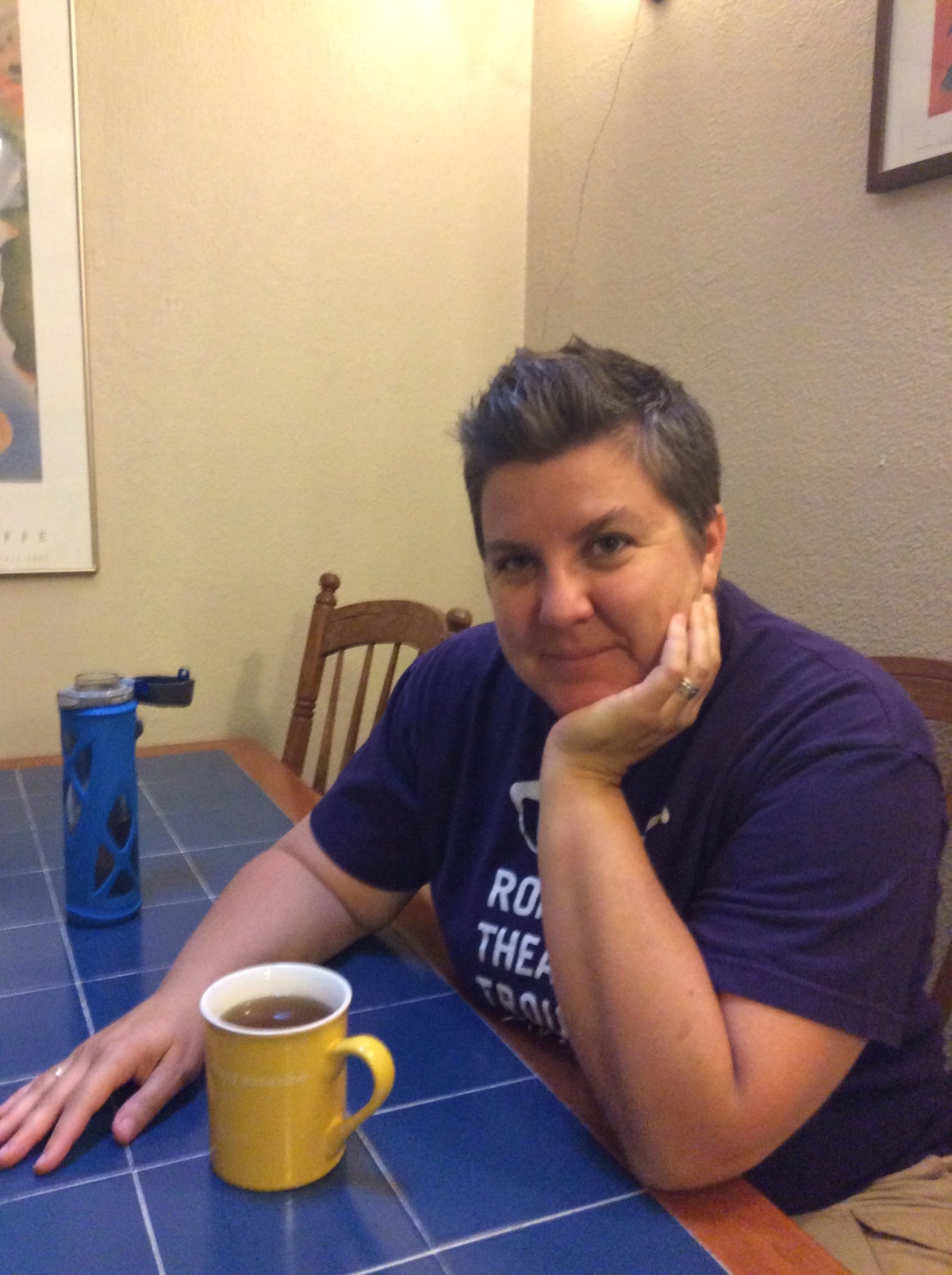
Raised in Monticello, Arkansas for part of her childhood, she remains connected to her roots in a way that inspires her current ministry.
On my daddy’s side of my family they were slaveholders. I always want to qualify it by saying that there’s only a few but it doesn’t really matter. They fought for the Confederacy. On my mom’s side they fought for the Union. All of that kind of lives in me.
There’s a tendency for white folk to not want to claim what’s happened in history like – “I wasn’t responsible for that, I wasn’t responsible for slavery, I wasn’t here for that” or whatever.
Dunlap acknowledges that she would not be here or be the person she is today were it not for the privileges and protections that were given to her because of slavery and racism.
The past is not past. It’s still alive and we’re still participating in it. And I wrestle with it because I don’t think guilt or shame about it is particularly helpful. Although sometimes I think you can’t help feel that as an initial response.
In the first conversation I ever had with Dr. [Vincent] Harding, I told him about these things and I told him that I didn’t know what to do about this history. All he said was “wrestle ‘til you get a blessing from it.” So that’s what I try to do and I think the blessing from it is trying to live into a different history and trying to tell stories of resistance in my family and lifting those up.
One of those stories of resistance involves Dunlap’s paternal grandfather, a Methodist minister during the 40’s, 50’s and 60’s. At one point, he was the pastor of Winfield United Methodist Church in downtown Little Rock, Arkansas. He voiced his opposition to segregation. It may have cost him the office of bishop.
As a boy my dad remembers hearing his dad arguing with other Methodist ministers about segregation in Little Rock and Central High School and he was public about those things. He ran for Bishop. I think in the 60’s. And [he] was public about the need to end segregation in the church and to fully honor, in the Arkansas context, the presence and lives of Black people in the church. He didn’t win but he spoke.
When I visited with my parents, they uncovered some sermons of his. There’s one of them from around 1968 when he was pastor at Winfield. At that time they were seeing other white churches flee to the suburbs, as the neighborhood around them changed, and people were telling him, “we need to move. Why aren’t we moving?” And he preached a sermon about the importance of staying and being in relationship with people around them.
It’s not everything I would say but for his context and his time, it’s pretty clear where he stands. It was a beautiful thing to uncover and to read and to have that courage from the pulpit in those times.
Another story shaping Dunlap’s current ministry describes one of the most difficult moments in her life: She and her family moved from her beloved Monticello when she was nine.
My dad went to seminary in Austin, Texas. That was fine. We were away from a place that we knew. I was immersed in the geography of place in Monticello and in Arkansas. We were with my daddy’s family all the time. I spent summers with my grandmothers. My grandparents would come and pick me up. I spent time with my daddy’s family all the time. We moved away from that but we knew we weren’t staying in Austin for that long.
But when we moved to Kansas, it was a perfect storm of things. I was just turning 12. I was finishing 6th grade and started 7th grade. This was the time when elementary was K through 6th and Junior High was 7th through 9th. So I had not one but two school changes that year. Even though Arkansas and Kansas share a corner, they are completely different culturally. And our whole family felt that.
The Dunlap family experienced dissonance with respect to hospitality. Unlike Arkansas, the new Kansas community did not offer a beverage or food when they invited people into their homes.
Dunlap’s mother also felt uncomfortable with the expectations that she fit into the stereotypical role of the preacher’s wife.
My mom was not welcome to show up fully as she is. My mom’s a smart person. They wanted her to host tea parties and that’s not what she did.
During this time period, Dunlap personally faced some of the challenges that adolescence brings. She struggled with coming out about her sexual orientation and the often dangerous reactions that revelation can bring.
I discovered and properly squashed “I don’t think I like boys” kind of realizations. I had internal turmoil about that. I experienced a little bit of bullying at school. And I think it became clear very quickly that my dad’s church was not a safe place for any of us.
These experiences gave her empathy for alienation, vulnerability and a sense of “outsiderness”.
There was a lack of hospitality. I felt like an outsider. I felt like an outsider everywhere. I felt like an outsider in just about every aspect. So those five years that we lived there were really hard.
They got harder as we lived there. Churches are really shitty to pastors. This really sucks. It was a really horrible and complicated time. I felt really alone and unsafe. There wasn’t anybody that I could talk to about what I was feeling or experiencing.
But I share that because those experiences of feeling alone and like there was no safe place for me to be and that people who had the power to help me didn’t always do that, it turns out deeply informs the work that I now do.
As a teenager, Dunlap felt called to the Sanctuary Movement.
The late 70’s, 80’s [and] the early 90’s Sanctuary Movement was centered around congregations, Christian and Jewish both, that offered refuge and safe harbor to people fleeing the civil wars in South America, especially El Salvador and Guatemala. It was a network around the country and into Canada to help people get across the border. [Congregations in the Sanctuary Movement were] harboring them in their sanctuaries and sometimes in people’s homes.
I learned about that in 1986 at a Presbyterian Youth Event. A young woman who was a Sanctuary worker in Tuscon spoke and a Salvadoran refugee spoke. It was just one of those moments in your life. My heart was pounding when I thought, “How is this happening and how can I help it?” Because of U.S. weapons and U.S. policy.
I went home and I asked my dad, “Can we be a Sanctuary church?” My dad said, “No, not here. I’m glad you’re thinking about this but not here.”
Eventually, Dunlap was able to advocate within the Sanctuary Movement and in other communities needing advocacy around social justice. Recently, her efforts have focused around her leadership in the local chapter of the national social action group Showing Up for Racial Justice (SURJ).
The work can look a lot of different ways. Sometimes it’s organizing people. Sometimes it’s co-leading direct actions. Sometimes it’s marshaling for actions led by people of color so they can have the space they need to [function] and not have to interact with unhelpful white people, of which we are many. We are legion.
It involves a lot of writing [and] trying to use the public platform that I have as an ordained person to speak, particularly right now, to speak to white people about how we do this in ways that are unhelpful to people of color. I’m trying to figure our how to do this from a place of love which can be a real challenge.
Dunlap attributes her desire to work with white people from a place of love to Dr. Vincent Harding’s example in the Iliff classroom.
[He had this] capacity to be grounded and loving in spaces – in classroom spaces with white people. I ask him all the time still, “How did you do that? How did you do that?” I’m still listening.
Part of it is I think his tactic of speaking very slowly and pausing. There is something about the slowing down.
You’d ask him a question and he would nod and take a minute, instead of just popping off with whatever. I think it was like a spiritual practice to stay grounded for him. That’s my guess.
Dunlap is also influenced by words Dr. Harding said to her and her partner in 2012 when they were discussing movement work.
We had him here in our home – right at this table. He said, “the wisdom of the spirituals – the wisdom of slaves who developed the spirituals and the wisdom in the particular spiritual, I’m Going to Lay Down My Sword and Shield.”
He really emphasized the ‘and shield’ bit. “I’m going to lay down my sword and shield,” he said.
I looked at him and I said, “But Dr. Harding, if you lay down your shield, then you don’t have any protection.”
He said, “That’s exactly right. You lay them both down because your protection comes from somewhere else.”
I have been sitting with that ever since. So it’s not enough to lay down the weapon. You have to lay down the shield, too, that protects you from other people’s weapons, which is an immense amount of vulnerability.
I find that is what is required at least of me in the work that I do. And trust that I am ultimately safe and held, not because I carry a shield but because the ancestors and the Divine are surrounding me and loving on me and holding me through the work.
Finally, Dunlap credits Dr. Harding for her participation in SURJ.
This trajectory that my life has now taken to being focused on white people work is his fault because when he died I started asking him, “What am I going to do now, Dr. Harding? How am I going to work in a way that honors your life?”
Then, Michael Brown was killed – murdered, just a few months later.
Then, I asked him again, “What do I do now?” Then, I started receiving all of these calls from people of color saying, “White people, you need to show up. You need to speak up. We need you.” Then, I realized that was the place where my work needed to be.
It wasn’t like it took a whole different tact, like I’m changing my vocation. But this is where we are going to deepen your vocation now. Because most of my work has been bridging or walking in solidarity with people of color.
But, specifically, working with white people? It may be the hardest thing I’ve ever done.




